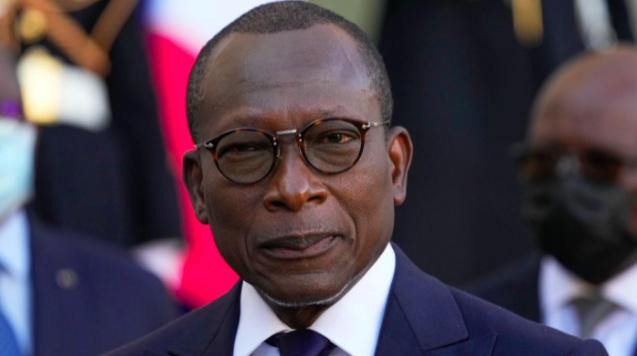My condolences to the family of former Angolan President Eduardo dos Santos upon his passing. I had regular meetings with President Eduardo Dos Santos of Angola while I held senior positions in African affairs in the U.S. Government from 1986 to 1993. At all times, I found him to be a sincere believer in peace and democracy for his people. While his tenure in office was undermined by civil war and fiscal mismanagement, I believe he set the stage for the strong democratic and anti-corruption systems that followed.
Read MoreA French translation of my recent article, in which I discuss how Africa is not a battlefield for competition with China and Russia. We must see African aid, development, and investment as worthy security projects in their own right – in this article for Proceedings.
Les États-Unis doivent considérer l’aide, le développement et l’investissement de l’Afrique comme de sérieux projets de sécurité à part entière. Les investissements dans l’agriculture durable, l’énergie propre, les infrastructures et la finance attendent que les États-Unis prennent les initiatives.
Read MoreIn June 1980, I was completing my three-year assignment as U.S. Ambassador to Senegal. Our family effects were all packed and ready for shipment to Washington. We were about to depart after a round of farewell dinners given by fellow ambassadors and government officials. At the last minute, we received instructions from the State Department to delay. Vice President Walter Mondale had scheduled a goodwill visit to West Africa in mid-July. Senegal was his first stop, and I was to manage his visit.
Read MoreFor allAfrica, I wrote this article on how the Biden administration is likely to take a new approach to Africa. It is reproduced below.
Despite dire predictions, the Trump Administration's overall policy toward Africa represented continuity. Foreign aid continued; skilled diplomats were appointed and deployed to resolve conflicts; and the signature Africa programs of past presidents remained unabated. The administration launched a trade program, and President Trump himself intervened to mediate a brewing conflict in east Africa.
Read MoreFor Ambassador John Campbell’s Africa in Transition blog on the Council on Foreign Relations website, I authored this piece on how the Biden administration can take a more direct approach to addressing the causes and effects of climate change in Africa. It is reproduced below.
Climate change is both one of the greatest threats to Africa and an area in which Biden administration policy is most likely to differ from President Trump's. Through his leadership on this issue, the president-elect has a chance to make a difference for millions of Africans while setting a global example for urgent action.
Read More![Article: Le moment est venu pour un pivot [de l’Amérique] vers l’Afrique](https://images.squarespace-cdn.com/content/v1/53fbee7de4b025af9f19f385/1649187424119-P8WTFZSOTSW871TM203P/COMM-PRO-3-22+hero.jpg)






